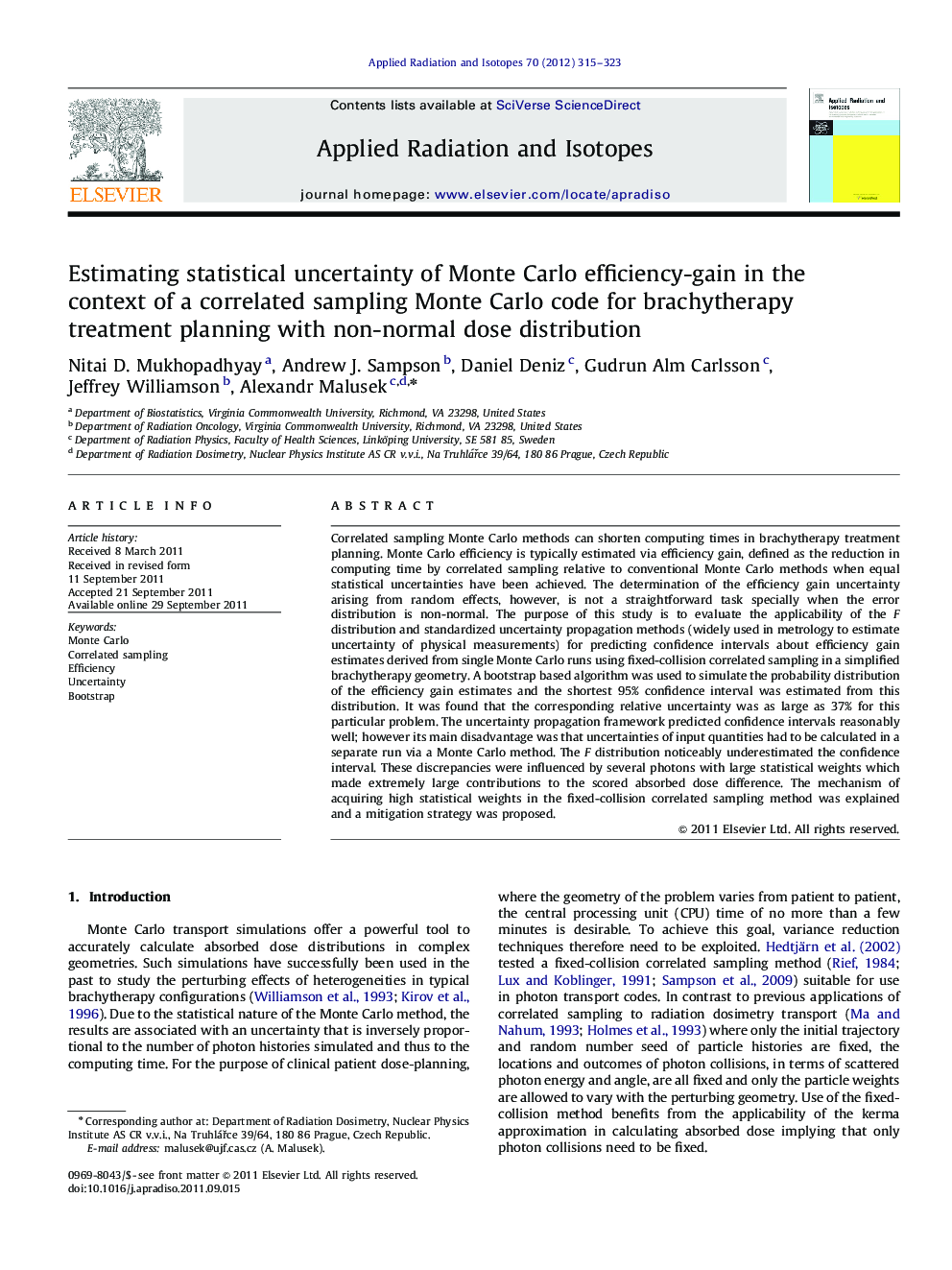| Article ID | Journal | Published Year | Pages | File Type |
|---|---|---|---|---|
| 1879175 | Applied Radiation and Isotopes | 2012 | 9 Pages |
Correlated sampling Monte Carlo methods can shorten computing times in brachytherapy treatment planning. Monte Carlo efficiency is typically estimated via efficiency gain, defined as the reduction in computing time by correlated sampling relative to conventional Monte Carlo methods when equal statistical uncertainties have been achieved. The determination of the efficiency gain uncertainty arising from random effects, however, is not a straightforward task specially when the error distribution is non-normal. The purpose of this study is to evaluate the applicability of the F distribution and standardized uncertainty propagation methods (widely used in metrology to estimate uncertainty of physical measurements) for predicting confidence intervals about efficiency gain estimates derived from single Monte Carlo runs using fixed-collision correlated sampling in a simplified brachytherapy geometry. A bootstrap based algorithm was used to simulate the probability distribution of the efficiency gain estimates and the shortest 95% confidence interval was estimated from this distribution. It was found that the corresponding relative uncertainty was as large as 37% for this particular problem. The uncertainty propagation framework predicted confidence intervals reasonably well; however its main disadvantage was that uncertainties of input quantities had to be calculated in a separate run via a Monte Carlo method. The F distribution noticeably underestimated the confidence interval. These discrepancies were influenced by several photons with large statistical weights which made extremely large contributions to the scored absorbed dose difference. The mechanism of acquiring high statistical weights in the fixed-collision correlated sampling method was explained and a mitigation strategy was proposed.
